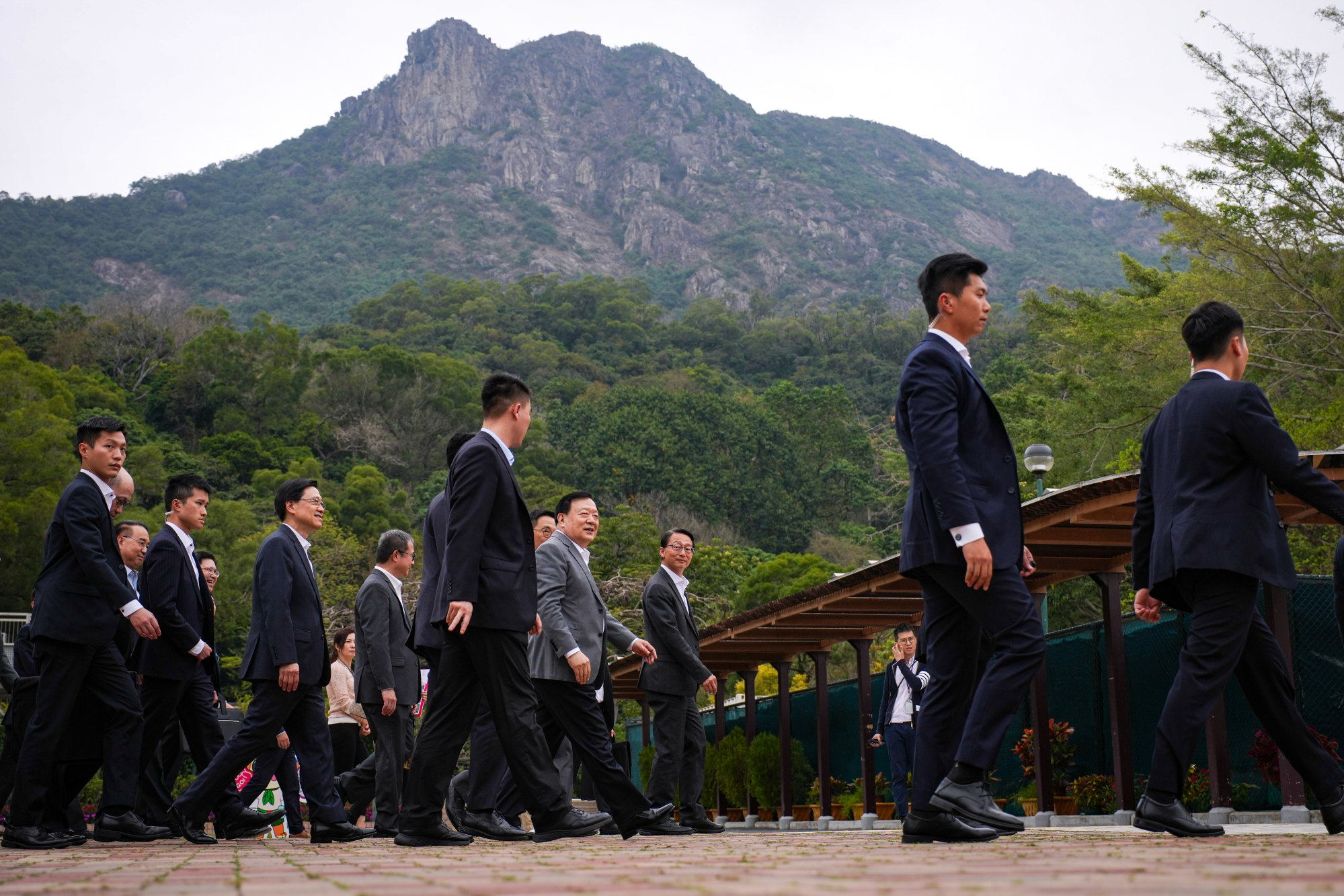
What are the ‘facts’ for Beijing’s top man in charge of Hong Kong affairs on his fact-finding mission to the city?
- Xia Baolong, director of Hong Kong and Macau Affairs Office, has economic focus for seven-day visit and will report back on city’s pulse after gauging public feedback
- His message so far has been loud and clear, assuring the city of Beijing’s support and welcoming business sector’s contributions
Visits to Hong Kong by China’s state leaders and top officials can be quite telling when it comes to what Beijing may have in mind for policy priorities concerning this city. And one that speaks volumes is the ongoing seven-day “inspection” or “fact-finding” visit by Xia Baolong, the top man overseeing Hong Kong affairs.
In his official capacity as director of the Communist Party Central Committee’s Hong Kong and Macau Affairs Office, and executive deputy head of the party’s powerful Central Leading Group, it is becoming apparent that Xia is on a mission with a clear economic focus, although he is also here to gauge public feedback as consultation on the city’s home-grown national security legislation ends on Wednesday.
Xia’s packed schedule since he arrived last Thursday seemed to underscore economic priorities over politics, with one eye-catching highlight being a four-hour session – the longest single meeting so far – with local as well as foreign business heavyweights. And on Monday he meets the heads of all the major foreign business groups, including the American Chamber of Commerce.

The message is loud and clear: be confident in Hong Kong’s future; Beijing’s unwavering support for the city remains steadfast; and contribution by the business sector, including local and foreign operators, is needed and appreciated.
Confirming an exclusive report by the South China Morning Post last week, the local government officially announced Xia’s visit as a mission to “gain better understanding of Hong Kong’s latest situation”.
The term “official visit” to describe such trips has been quietly, yet noticeably, replaced by “inspection” in recent years. The Chinese version of the government’s press release more accurately described Xia’s mission as kaochadiaoyan: kaocha meaning “inspection” and diaoyan for “looking into and studying [the situation]”. The “inspection-plus-study” practice has been requested of senior officials by President Xi Jinping when they reach out to local areas – no more hit-and-run visits of the “Cook’s tour” type.
Hong Kong security law should balance national safety and rights: Bar Association
Xia is well aware that Hong Kong’s economy is not in a good shape, thanks to the complexities of internal and external factors, but a first-hand look on the ground gives him a better sense of the city’s pulse which he can report back to President Xi and the top leadership as a highly trusted point man.
The timing is also significant, just ahead of the “two sessions” next month when China holds its most important annual parliamentary and political gatherings for setting the country’s development agenda. Xia’s findings in Hong Kong can serve as important references for top policymakers in fine-tuning national planning involving the city’s role.
This is a timely boost for Hong Kong as it faces an uphill battle to correct the doomsday narratives of critics from overseas, and ironically even from mainland China, who keep declaring that Hong Kong is “finished” and its glory days are “over”.
Hong Kong is far from finished or anything of that sort, but beyond such rebuttals, Xia is being practical in setting the direction: put the economy back on track after plugging national security loopholes and keep your unique status as an international city.
Beijing’s support is necessary and welcome, but Hong Kong must also do its own part to fix problems. That need to step up was underscored when Beijing announced it would include another two heavily populated northern cities, Qingdao and Xian, in an expanded tourism plan to allow more individual visitors to travel to Hong Kong. It was only then that local officials came to realise direct flights from these cities were extremely limited, and the existing Hong Kong part of the country’s high-speed railway network had yet to directly link up with them.
For Hong Kong’s next stage of development, how to get the best possible benefits from Beijing’s “one country, two systems” governing formula is a real test for everyone, not just the local government.
At the end of the day, domestic politics, geopolitics and economies are all intertwined, and will continue to trouble Hong Kong, no matter how much it puts the focus on business. But the city has to get on with it, and that requires more confidence as well as greater political wisdom if Hong Kong is to remain valuable and relevant, not only to the country but the rest of the world as well.

